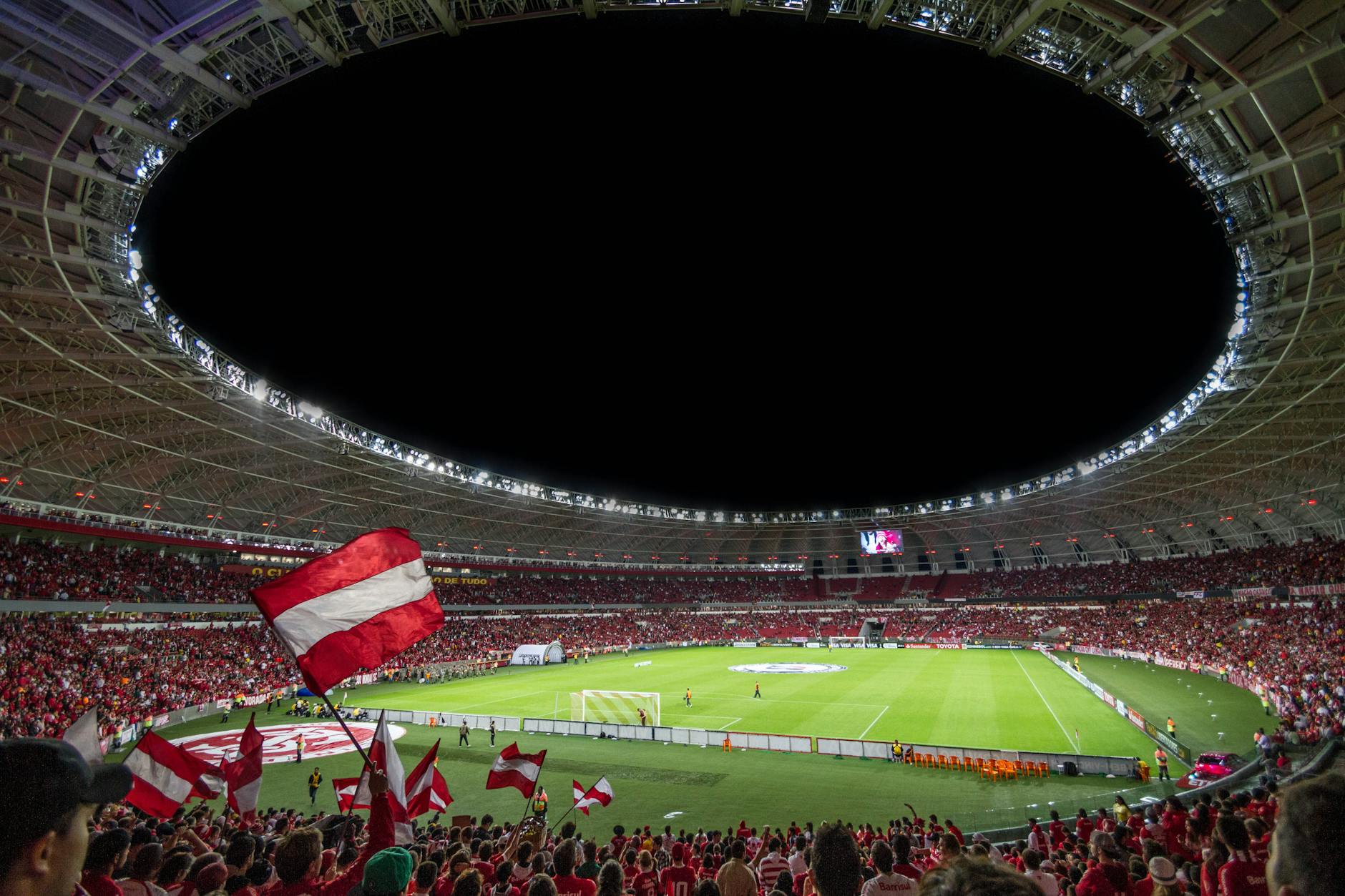In this article, we delve into the exciting match-up between Croatia and Albania, exploring their lineups, strategies, and what fans can expect from this thrilling encounter. The anticipation is building as these two teams prepare to face off, and there’s a lot at stake for both sides.
Croatia has a rich history of producing world-class footballers, and this match will be no different. One player to keep an eye on is Luka Modrić. The midfield maestro has been a pivotal figure for Croatia, orchestrating plays and providing crucial assists. His experience and vision on the field are unmatched, and he could very well be the difference-maker in this match.
Another player to watch is Ivan Perišić, known for his speed and ability to score from the wings. He can stretch the opposition’s defense and create opportunities for his teammates. Additionally, Josko Gvardiol, a rising star in defense, will be vital in maintaining Croatia’s backline against Albania’s attacking threats.
Albania has been making strides in international football, with a squad that’s becoming increasingly competitive. Key players like Armando Broja and Rey Manaj are crucial for their attacking strategy. Broja, a young talent playing in the Premier League, brings pace and power, while Manaj has a knack for finding the back of the net.
Moreover, the experience of players like Elseid Hysaj in defense will be essential for Albania as they look to contain Croatia’s potent attack. The team is expected to adopt a more defensive approach, looking to counter-attack and capitalize on any mistakes from Croatia.
Tactics can make or break a match. Croatia is likely to utilize a 4-3-3 formation, emphasizing midfield control and wing play. This setup allows them to dominate possession and create numerous scoring opportunities. With Modrić pulling the strings in the midfield, Croatia can dictate the pace of the game.
Additionally, the use of overlapping full-backs will stretch Albania’s defense, creating space for wingers like Perišić. Croatia’s strategy will focus on quick transitions, exploiting any gaps left by Albania’s defense.
Fans play a crucial role in football, and both Croatian and Albanian supporters are eagerly anticipating this clash. Croatian fans expect a dominant performance at home, hoping to see their team secure a vital win. The atmosphere in the stadium is expected to be electric, with chants and flags creating an unforgettable experience.
On the other hand, Albanian fans are optimistic about their team’s chances. They believe that with a solid defensive plan and quick counter-attacks, their team can steal points from Croatia. The rivalry between these two nations adds an extra layer of excitement to the match.
The significance of this match goes beyond just national pride; it holds implications for the qualification campaigns of both teams. As the game approaches, the stakes couldn’t be higher, and fans from both sides are ready to cheer their teams on to victory.
What Are the Key Players to Watch in Croatia’s Lineup?
When we talk about Croatian football, it’s impossible to ignore the **incredible talent** that has emerged from this small yet passionate country. Croatia has consistently produced world-class footballers who have made their mark on the international stage. In this section, we’ll delve into the standout players from Croatia’s lineup who are likely to shine in the upcoming match against Albania.
First up, we have Luka Modrić. The midfield maestro is not just a player; he’s a symbol of Croatian football. His vision, passing accuracy, and ability to control the game are unmatched. Modrić’s experience in high-stakes matches allows him to dictate the pace and flow of the game. Fans can expect him to pull the strings and create opportunities for his teammates.
Another key player to watch is Ivan Perišić. Known for his speed and agility, Perišić is a winger who can change the course of the match with his dribbling skills and precise crosses. He has a knack for scoring crucial goals, and his ability to exploit defensive weaknesses could be pivotal against Albania.
Don’t forget about Josko Gvardiol, the young defender who has been making waves in Europe. His strong tackling and aerial ability make him a formidable presence in defense. Gvardiol’s performance will be crucial in keeping Albania’s attackers at bay, especially during set pieces.
We also have Andrej Kramarić, who can be a game-changer up front. His ability to find space in tight areas and score from various positions makes him a constant threat. Kramarić’s partnership with Modrić could lead to some exciting attacking plays that fans will surely love to see.
Lastly, let’s not overlook the influence of the goalkeeper, Dominik Livaković. A solid performance from him can be the difference between winning and losing. His shot-stopping ability and command of the area will be vital in maintaining a clean sheet against a determined Albanian side.
In summary, Croatia boasts a lineup filled with players who have both skill and experience. Each of these athletes brings something unique to the table, and their collective efforts could very well determine the outcome of the match against Albania. Fans should keep an eye on these key players, as their performances are likely to be crucial in this exciting encounter.
How Is Albania’s Squad Shaping Up for the Match?
As the anticipation builds for the upcoming match between Croatia and Albania, football fans are keenly interested in how Albania’s squad is shaping up. The Albanian national team, often seen as the underdogs, has been steadily improving its performance on the international stage. In this section, we’ll take a closer look at the team composition, key players, and their strategies to challenge Croatia.
Albania’s squad is a mix of experienced players and emerging talents. The team manager has been focusing on creating a balanced lineup that can compete at a high level. The goalkeeping position is often held by the veteran Etrit Berisha, who brings a wealth of experience and stability to the backline. In defense, players like Marash Kumbulla and Elseid Hysaj are crucial for their ability to read the game and make key interceptions.
In midfield, Albania has some exciting prospects, including Liridon Leci and Granit Xhaka. Their ability to control the pace of the game and distribute the ball effectively will be vital against a strong Croatian side. Upfront, Armando Broja has been making waves in the Premier League, and his pace and clinical finishing will be essential for Albania to create scoring opportunities.
When it comes to key players, Armando Broja stands out as a player who can change the game in an instant. His speed and agility make him a constant threat to opposing defenses. Another player to keep an eye on is Rey Manaj, who has shown great promise in recent matches. His ability to hold up the ball and link play will be crucial for Albania’s attacking strategies.
Albania’s tactical approach will likely focus on a solid defensive setup, aiming to frustrate Croatia’s attack while looking for opportunities to counter. The team may adopt a 4-2-3-1 formation, allowing them to maintain a strong midfield presence while also providing width through their wingers. This strategy could help them exploit any gaps in Croatia’s defense.
Additionally, set pieces could be a significant part of Albania’s game plan. With players like Andi Lila and Berisha being strong in aerial duels, they could pose a threat during corners and free-kicks. The team’s ability to capitalize on these situations may very well determine the outcome of the match.
In summary, while Albania faces a daunting challenge against Croatia, their squad’s composition and tactical flexibility could make for an exciting encounter. Fans will be eagerly watching to see how their players perform on this significant stage.
Which Tactics Will Croatia Employ Against Albania?
In the upcoming match between Croatia and Albania, the tactical approaches taken by both teams will be pivotal in determining the outcome. Tactics can make or break a match, and Croatia’s strategy will be under the spotlight as they look to secure a win. Croatia has a rich footballing tradition, and their tactical flexibility is one of their strongest assets. So, what formations and strategies might they employ to outmaneuver Albania?
Formations are the backbone of any football strategy. Croatia may opt for a 4-3-3 formation, which has been effective in showcasing their attacking prowess. This formation allows for a strong midfield presence while providing width through the wingers. The front three can exploit Albania’s defensive weaknesses, especially on the flanks. Alternatively, Croatia might consider a 4-2-3-1 setup, which adds more stability in midfield and allows their creative players to thrive. This flexibility in formations is crucial, as it enables Croatia to adapt to the flow of the game.
Midfield control is often the key to victory, and for Croatia, it’s essential. Their midfielders are not just ball winners; they are playmakers, capable of transitioning from defense to attack smoothly. Players like Luka Modrić, with his vision and passing ability, can dictate the tempo of the game. By dominating the midfield, Croatia can limit Albania’s chances and create opportunities for their forwards. If Croatia can establish this control early on, it will significantly increase their chances of a favorable outcome.
Defensively, Croatia must be vigilant against Albania’s counter-attacks. One potential tactic is to employ a high defensive line, pressing Albania in their half to regain possession quickly. However, this requires coordination and speed from the backline, as it leaves them vulnerable to quick breaks. Alternatively, Croatia may choose to sit back and absorb pressure, looking for opportunities to hit Albania on the counter. This tactical choice can be risky but could pay off if executed correctly.
Ultimately, Croatia’s success against Albania will hinge on their ability to adapt their tactics throughout the match. With a blend of strategic formations, midfield control, and defensive discipline, they aim to secure a vital win in this competitive fixture.
What Formation Will Croatia Likely Use?
When it comes to understanding Croatia’s football strategy, the formation they choose to deploy is absolutely critical. Croatia is known for its tactical flexibility, but they often favor a formation that enhances their strengths while minimizing weaknesses. The most common formation used by Croatia is the 4-3-3, which balances both offensive and defensive responsibilities effectively.
The 4-3-3 formation allows Croatia to utilize their talented midfielders to control the game. With three players in the midfield, they can dominate possession and dictate the tempo of play. This formation also provides width, allowing wingers to stretch the opposition’s defense. Croatia’s wingers are often quick and skillful, capable of delivering dangerous crosses or cutting inside to take shots on goal.
Additionally, the formation supports a strong attacking front. The two wingers can support a central striker, creating multiple options for goal-scoring opportunities. This versatility is key when facing teams like Albania, who may sit back defensively. Croatia’s ability to switch play and exploit the flanks can create mismatches and open up gaps in the opposition’s defense.
Midfield control is paramount in football, and Croatia’s 4-3-3 formation places significant emphasis on this area. The three midfielders can effectively press the opposing team, regain possession, and transition quickly into attack. Players like Luka Modrić and Marcelo Brozović are pivotal; their vision and passing ability can unlock defenses and create opportunities for forwards.
Moreover, the formation allows for flexibility in roles. One midfielder can push forward into an attacking position while the others cover defensively, ensuring that Croatia maintains balance. This adaptability is crucial in high-stakes matches where the dynamics can change rapidly.
While the 4-3-3 formation has its strengths, it also presents challenges. If the midfielders are outnumbered or overrun, it can leave the defense exposed. Against teams that play a compact formation, Croatia may struggle to break down defenses if they rely too heavily on wide play. Furthermore, if the wingers fail to track back, it can create vulnerabilities in the backline.
Overall, Croatia’s formation is a reflection of their playing style—dynamic, fluid, and adaptable. As they prepare for their match against Albania, understanding these tactical nuances will be key for fans and analysts alike.
How Important Is Midfield Control for Croatia?
Midfield control is a critical aspect of football that can often determine the outcome of a match. In the context of the Croatia national football team, their midfielders play a pivotal role in shaping the game. The ability to control the midfield allows a team to dictate the pace, create scoring opportunities, and effectively defend against opponents. In this article, we will delve deeper into the importance of midfield control for Croatia and how their talented midfielders contribute to their overall strategy.
When we talk about midfield control, we’re really discussing the heart of the game. Croatia has been known for its exceptional midfielders, who possess not just technical skills but also the vision to read the game. Players like Luka Modrić and Marcelo Brozović are not just ball-winners; they are playmakers who can turn defense into attack in the blink of an eye. Their ability to maintain possession and dictate the tempo of the game is crucial for Croatia’s success.
Moreover, controlling the midfield allows Croatia to execute their tactical plans effectively. With a strong midfield presence, they can limit the opposition’s chances by cutting off passing lanes and applying pressure. This is particularly important against teams like Albania, who may look to exploit any weaknesses. By maintaining midfield dominance, Croatia can ensure that they have the upper hand in both offensive and defensive situations.
The flow of the game heavily relies on how well the midfielders can transition between defense and attack. Croatia’s midfielders are skilled at not only winning the ball back but also quickly transitioning it forward to their forwards. This quick transition is vital in creating scoring opportunities and keeping the opponent on the back foot. The ability to switch play and find open spaces can disrupt the defensive organization of the opposing team.
Furthermore, Croatia’s midfielders often act as a bridge between the defense and the attack. Their positioning and movement allow for fluidity in the team’s play, making it difficult for opponents to predict their next move. This unpredictability can lead to goal-scoring chances and ultimately, victories. Croatia’s success in international tournaments can often be traced back to their midfield’s ability to control the game.
One of the standout features of Croatia’s midfielders is their experience on the international stage. Many of them have played in top European leagues and have had success in various competitions. This experience is invaluable, especially in high-pressure situations like international tournaments. Their ability to remain calm under pressure and make quick decisions is a testament to their skill and training.
In addition, Croatia’s midfielders are known for their stamina and work rate. They cover a lot of ground, contributing both defensively and offensively. This tireless effort ensures that they can maintain control throughout the match, which is essential for a team looking to secure a win. The combination of technical ability, tactical awareness, and physical fitness makes Croatia’s midfield one of the best in the world.
In conclusion, midfield control is not just an aspect of Croatia’s game; it is a defining characteristic of their playing style. The ability of their midfielders to dictate the pace, transition effectively, and influence the game’s flow is crucial for their success. As fans look forward to the upcoming match against Albania, it will be interesting to see how Croatia leverages their midfield strength to secure a victory.
What Are Albania’s Tactical Approaches Against Croatia?
When it comes to international football, tactics can be the difference between victory and defeat. As Albania prepares to face Croatia, their tactical approaches will be crucial in determining the match outcome. The Albanian team has been known for its resilience and strategic planning, and this match will be no exception. So, what exactly can we expect from Albania on the field?
First and foremost, Albania is likely to adopt a defensive formation that emphasizes organization and discipline. A 4-2-3-1 formation could be a strong choice, allowing them to maintain a solid backline while also providing support in midfield. This setup not only helps in defending against Croatia’s attacking threats but also allows for quick counter-attacks—a tactic that has proven effective in past matches. The players in the midfield will be essential for breaking up Croatia’s plays and transitioning the ball quickly to the forwards.
Another aspect to consider is Albania’s focus on pressing high up the pitch. By applying pressure on Croatia’s defenders early, they can force mistakes and create goal-scoring opportunities. This tactic requires a lot of energy and commitment, but if executed well, it can disrupt Croatia’s rhythm and give Albania a chance to capitalize on any errors. Players like Rey Manaj and Armando Broja could be pivotal in leading this press, using their speed and agility to unsettle the Croatian backline.
Additionally, set pieces could play a significant role in Albania’s strategy. Historically, they have been effective from corners and free kicks, and with players who can deliver precise balls into the box, they could exploit any defensive lapses from Croatia. It’s crucial for Albania to take advantage of these situations, especially against a team that might dominate possession.
In conclusion, Albania’s tactical approaches against Croatia will be centered around solid defense, high pressing, and capitalizing on set pieces. If they can execute their game plan effectively, they stand a good chance of challenging Croatia’s strengths. Fans will be eagerly watching to see how these tactics unfold on match day!
How Have Previous Encounters Between Croatia and Albania Played Out?
When it comes to football rivalries, few matchups are as intriguing as the one between Croatia and Albania. Historical context can be insightful, and looking back at their past matches reveals a lot about their competitive spirit and evolving strategies. Over the years, these two teams have faced each other in various competitions, and each encounter has contributed to the rich tapestry of their rivalry.
One of the most memorable matches took place during the UEFA European Championship qualifiers in 2015. Croatia emerged victorious with a score of 6-0, showcasing their dominance and tactical superiority. This match highlighted Croatia’s strong attacking prowess and their ability to control the midfield, which has often been a key factor in their success. However, it also served as a wake-up call for Albania, pushing them to reevaluate their strategies and player development.
On the other hand, there have been tight encounters that showed the intensity of the rivalry. In a friendly match in 2018, Croatia managed to secure a narrow 2-1 victory. This game was significant because it demonstrated Albania’s resilience and ability to challenge a more established team. The fans were treated to a thrilling display of football, and it was clear that Albania was not to be underestimated.
Moreover, the historical context of these matches is enriched by the cultural ties and the passionate fan bases of both nations. The football fields have often served as a battleground for national pride, with each team eager to assert their dominance. The atmosphere during these matches is electric, filled with chants and cheers that echo the sentiments of the supporters.
In summary, the past encounters between Croatia and Albania have not only shaped their rivalry but also provided insights into their tactical evolutions and player capabilities. Fans can expect more gripping matches in the future as both teams continue to grow and adapt. The historical context is not just a backdrop; it’s a vital part of the ongoing narrative that makes these encounters so compelling.
What Were the Highlights from Past Matches?
The rivalry between the Croatia National Football Team and the Albania National Football Team has produced some truly memorable moments that fans still talk about today. These matches are not just games; they are battles that showcase the heart and passion of both teams. One of the most unforgettable clashes occurred during the UEFA Euro Qualifiers in 2015, where Croatia managed to secure a narrow 1-0 victory in a tense atmosphere. The match was marked by a stunning long-range goal from Ivan Rakitić, which sent the Croatian fans into a frenzy.
Another highlight was the friendly match in 2019, where both teams displayed their attacking prowess. The game ended in a thrilling 2-2 draw, with Albania fighting back from a two-goal deficit. The resilience shown by the Albanian players, especially from Armando Sadiku, who scored a dramatic equalizer, showcased their determination and skill. The atmosphere was electric, and it was a reminder of how closely matched these teams can be.
In terms of intensity, the matches have often been characterized by fierce tackles and passionate displays from both sides. The 2016 World Cup Qualifiers saw a particularly heated encounter, where tensions flared, leading to a few yellow cards being issued. Croatia’s Luka Modrić was instrumental in that match, controlling the midfield and creating numerous chances. Fans remember the palpable tension, with every tackle and every shot on goal feeling monumental.
Moreover, the historical context adds another layer to this rivalry. The proximity of the two nations, along with their shared history, means that every match is more than just a game; it’s a matter of pride. Fans from both sides create an atmosphere that is nothing short of electric, making these encounters unforgettable.
As we look forward to the next match, it’s essential to remember these highlights. They remind us of the passion, skill, and drama that football brings, and why we love the game so much. The intensity of the rivalry ensures that every clash between Croatia and Albania will be one for the books.
How Have Both Teams Evolved Over the Years?
Team evolution in football is a truly fascinating journey. Over the years, both the Croatia and Albania national teams have undergone significant transformations in terms of player development and tactical approaches. This evolution is not just about the players on the pitch but also the coaching philosophies and the footballing culture within each country.
Starting with Croatia, the nation has consistently produced world-class talent. From the golden generation that reached the World Cup finals in 2018 to the younger players emerging from their renowned academies, Croatia’s focus on grassroots development has paid off. The Croatian Football Federation has invested heavily in youth programs, which has led to a steady influx of skilled players. This commitment has allowed Croatia to maintain a competitive edge in international football. Players like Luka Modrić and Ivan Rakitić have set high standards, but the new generation, including talents like Josko Gvardiol and Jude Bellingham, are stepping up to fill their shoes.
On the other hand, Albania has made impressive strides in recent years. While historically not as dominant as Croatia, Albania has been working hard to improve its footballing infrastructure. The Albanian Football Association has focused on enhancing coaching standards and developing local talent. This has resulted in a more competitive squad that has shown promise in international tournaments. Players like Shkelzen Gashi and Elseid Hysaj have become key figures, and the emergence of younger players is a sign of progress. The tactical approach of Albania has also evolved; they have shifted from a defensive mindset to a more balanced style of play, aiming to control the game while being aggressive in attack.
When it comes to tactics, Croatia often employs a fluid midfield that emphasizes possession and creativity. Their ability to adapt their formation based on the opponent has been a significant factor in their success. In contrast, Albania tends to focus on a more structured defensive setup, looking to capitalize on counter-attacks. This tactical evolution reflects their growth as a footballing nation, as they aim to challenge teams like Croatia more effectively.
In conclusion, the evolution of both teams is a testament to their dedication to improving and adapting in the ever-changing landscape of international football. As fans, we can only look forward to seeing how these two nations continue to develop and what the future holds for them on the global stage.
What Are the Fan Expectations for This Match?
Football is more than just a game; it’s a passion that unites millions of fans across the globe. As Croatia and Albania prepare to face off, supporters from both nations are filled with anticipation and excitement. The atmosphere is charged with expectations, and fans are eager to see their teams showcase their skills on the pitch. In this section, we will explore what exactly fans are hoping to witness during this thrilling match-up.
Croatian fans are known for their unwavering support and loyalty to their national team. They have high hopes for this match, especially given Croatia’s impressive track record in international football. Fans are looking forward to seeing their star players, such as Luka Modrić and Ivan Perišić, demonstrate their technical prowess and leadership on the field. Many supporters expect a strong attacking performance, with a focus on dominating possession and creating goal-scoring opportunities.
Moreover, Croatian fans are also keen on witnessing a solid defensive display. They want their team to maintain a clean sheet and show resilience against Albania’s counter-attacks. The atmosphere in the stadium is likely to be electric, with fans chanting and singing to motivate their players. The hope is that Croatia will not only secure a win but also play an entertaining brand of football that showcases their skill and flair.
On the other side, Albanian fans are equally passionate and optimistic about their team’s chances. They are hoping to see a spirited performance that reflects the growth of their national team in recent years. Albanian supporters want to see their players fight for every ball, displaying determination and grit against a formidable opponent like Croatia. Key players such as Elseid Hysaj and Berat Djimsiti are expected to step up and lead by example.
Fans are also looking for tactical discipline from their squad. They expect Albania to defend well and capitalize on any opportunities that arise during the match. The belief is that a solid performance against Croatia could boost the morale of the team and provide a significant boost in their qualification campaign. Additionally, Albanian fans are known for their vibrant celebrations, and they hope to create an unforgettable atmosphere in the stands, regardless of the match outcome.
The presence of passionate fans can significantly influence the dynamics of a football match. Croatian supporters will undoubtedly create a home advantage, cheering loudly and urging their players to perform at their best. The energy in the stadium can be a motivating factor for the Croatian players, pushing them to deliver a top-notch performance.
Conversely, Albanian fans will also bring their unique flair to the match, creating a lively atmosphere that can inspire their team. The rivalry between the two nations adds an extra layer of intensity, and both sets of fans will be eager to outdo each other in terms of support. The emotional stakes are high, and the players on both sides will feel the weight of their fans’ expectations.
In conclusion, as Croatia and Albania prepare to clash, fans from both nations are filled with hope and excitement. They expect to witness a thrilling match that showcases the best of football, with their respective teams fighting for victory. The passion, dedication, and love for the game are what make football truly special, and this match is sure to be a memorable one.
How Will Home Advantage Play a Role for Croatia?
The concept of home advantage in football is often talked about, and for good reason. When a team plays on its home turf, it typically enjoys several benefits that can significantly influence the match’s outcome. In the case of Croatia, the upcoming match against Albania presents a unique opportunity to leverage these advantages. Let’s dive deeper into how playing at home could be a game-changer for Croatia.
- Familiarity with the Pitch: One of the most obvious benefits is the familiarity with the playing surface. Croatian players are used to their home stadium’s dimensions, grass type, and overall conditions. This familiarity can lead to better performance, as they know how to adjust their game to the pitch.
- Support from Local Fans: The energy from the home crowd can be electrifying. Croatia’s passionate supporters will fill the stands, creating an atmosphere that can intimidate the opposing team. This vocal backing can boost players’ morale, pushing them to perform at their best.
- Reduced Travel Fatigue: Traveling can be exhausting, and for Albania, the journey to Croatia may take a toll on their players. In contrast, Croatia will be well-rested and ready to compete, which can be a significant factor in high-stakes matches.
- Psychological Edge: Playing at home often gives teams a psychological advantage. Knowing they have the support of their fans and the comfort of their surroundings can instill confidence in the players. This can lead to more aggressive play and a willingness to take risks.
Moreover, historical data shows that teams often perform better when playing at home. Croatia has a strong record in home matches, which adds to the pressure on Albania to perform. This psychological factor can lead to mistakes from the visiting team, making it easier for Croatia to capitalize on opportunities.
In conclusion, the combination of familiarity, fan support, reduced travel fatigue, and a psychological edge all contribute to Croatia’s potential home advantage against Albania. As the match approaches, it will be interesting to see how these factors play out on the field. The stage is set for a thrilling encounter, and Croatia will undoubtedly aim to make the most of their home ground advantage.
What Are the Predictions from Football Analysts?
As the highly anticipated match between Croatia and Albania approaches, football analysts are buzzing with excitement. Their predictions often provide fans with valuable insights into how the game might unfold. The analysts look at various factors, including team form, player fitness, and historical performance, to make educated guesses about the match outcome.
One key aspect that analysts focus on is the current form of both teams. Croatia, known for its rich footballing history, has a squad filled with talent playing in top leagues across Europe. Analysts often highlight players like Luka Modric and Ivan Perisic, who have been pivotal in Croatia’s recent successes. Their experience and skill could be crucial in breaking down Albania’s defense. On the other hand, Albania has been making strides and has some emerging talents that could surprise Croatia. Analysts are particularly interested in players like Armando Broja and Elseid Hysaj, who have shown promise in their respective leagues.
Another factor to consider is the tactical approach each team is likely to adopt. Croatia may lean towards a possession-based game, utilizing their midfield to control the tempo. Analysts predict that if Croatia can dominate the midfield, they will create numerous scoring opportunities. Conversely, Albania might adopt a more defensive stance, looking to hit Croatia on the counter-attack. This tactical battle will be fascinating to watch, as it could determine the outcome of the match.
Weather conditions and the venue also play a role in analysts’ predictions. If the match is played in a rain-soaked pitch, it could favor Albania’s more physical style of play, while a dry surface might benefit Croatia’s technical players. Analysts will be closely monitoring these conditions as the match day approaches.
In conclusion, while predictions can never be guaranteed, the insights provided by football analysts offer fans a glimpse into what to expect. With both teams having their strengths and weaknesses, this match promises to be an exciting encounter filled with drama and intensity. Fans are eagerly awaiting the kickoff, and analysts will be watching closely to see if their predictions hold true.
What Is the Importance of This Match in the Qualification Campaign?
This upcoming match between Croatia and Albania is not just another game on the calendar; it carries significant weight for both teams in their qualification campaigns. As both teams strive to secure their spots in the upcoming international tournaments, the outcome of this match could be pivotal. A win could boost morale and standings, while a loss could complicate their paths to qualification.
For Croatia, the stakes are high. Currently, they are aiming to maintain their position at the top of their group. A victory would not only solidify their standing but also enhance their confidence as they move forward in the qualification process. Points are crucial in this stage, and every match can make a difference. If they were to lose, it could jeopardize their chances, especially with tough opponents looming on the horizon. Fans are surely hoping for a strong performance to keep their dreams alive.
On the other hand, Albania faces a different set of challenges. They are in a tight race for qualification and need points desperately. This match presents a golden opportunity for them to upset a higher-ranked team, which could provide a massive boost to their campaign. A good result against Croatia could shift the momentum in their favor, giving them the much-needed confidence to tackle their remaining matches. The pressure is on, and the players know that a win can change everything.
Moreover, the historical context of this rivalry adds another layer of excitement. Previous encounters have been fiercely contested, and both teams understand the significance of the match. Not only does it represent a chance to earn crucial points, but it also embodies national pride. The players will be motivated not just by the points at stake, but by the desire to outperform their rivals.
In conclusion, this match is vital for both teams. It’s not merely about pride; it’s about securing their futures in international football. Fans and players alike are eagerly anticipating the clash, knowing that the implications of this game will resonate far beyond the final whistle.
How Do Points Impact Croatia’s Standing?
Understanding the significance of points in the qualification process is essential for any football fan, especially when it comes to the Croatia national team. In international football, every match counts, and the results can dramatically influence a team’s standing in the qualification table. So, how do points impact Croatia’s standing? Let’s break it down.
The qualification campaign for major tournaments like the World Cup or the UEFA European Championship is often a long and grueling process. Teams are typically divided into groups, and each team plays a series of matches against the others in their group. Points are awarded based on match results: a win earns three points, a draw gives one point, and a loss results in zero points. Therefore, accumulating points is crucial for advancing to the next stage.
For Croatia, each point gained or lost can be the difference between qualifying for a major tournament or facing disappointment. A win against a rival like Albania not only boosts their points tally but also enhances their confidence and morale. Conversely, a loss can lead to a downward spiral, affecting team dynamics and fan support. This is particularly important considering Croatia’s strong footballing history and the expectations from their passionate supporters.
Moreover, the positioning in the standings can affect the psychological aspect of the game. When Croatia is at the top of the group, they tend to play with more freedom and creativity. However, if they find themselves in a precarious position, the pressure mounts, leading to a more cautious approach. This is where the experience of players comes into play. Veteran players can help maintain composure and focus, even in high-pressure situations.
Additionally, the impact of points is not just limited to Croatia. Other teams in the group are also vying for their place in the standings. A strong performance against Albania can not only solidify Croatia’s position but also hinder Albania’s chances, creating a ripple effect throughout the group. It’s a chess game, where every move counts.
In conclusion, the importance of points in Croatia’s standing cannot be understated. Every match is an opportunity to secure a better position, and fans will be watching closely to see how their team performs. With the stakes so high, it’s clear that the upcoming match against Albania is not just another game; it’s a critical moment in Croatia’s quest for qualification.
What Challenges Does Albania Face in Their Qualification Journey?
Albania’s journey in international football has been anything but smooth. The national team has faced numerous hurdles, and as they gear up for their qualification matches, the stakes couldn’t be higher. In this section, we’ll explore the challenges they face and what a good result against Croatia could mean for them.
Albania is currently navigating a tricky qualification path, and several factors make this journey particularly challenging. First and foremost, the competition level in their group is fierce. Teams like Croatia and others have a history of strong performances, making it tough for Albania to secure points. The pressure to perform can be overwhelming, especially when facing teams with a wealth of experience and talent.
Another significant challenge is the development of local talent. While Albania has produced some notable players, there is still a gap compared to countries with more established footballing infrastructures. This affects not only the quality of the squad but also the depth. Injuries to key players can leave the team vulnerable, as they may not have adequate replacements to fill those gaps. Moreover, the lack of consistent international exposure for many players can hinder their growth and adaptability on the field.
There are also logistical issues, such as travel and accommodation, that can disrupt the team’s focus. Long journeys can take a toll on players, leading to fatigue. Additionally, the support from fans plays a crucial role in motivating the team. While Albanian fans are passionate, the team often plays in stadiums where they are not the home side, which can diminish their morale.
However, a positive result against Croatia could serve as a significant morale booster. It could instill confidence in the players and create a ripple effect throughout the squad. A win might not only enhance their standing in the qualification table but also boost their reputation on the international stage. It could signal that Albania is a team to be reckoned with, encouraging more young players to pursue football as a career.
Ultimately, while the road ahead is fraught with challenges, Albania’s determination and resilience could turn the tide in their favor. With the right mindset and strategy, they can overcome these obstacles and take a significant step towards qualification.
In this article, we delve into the exciting match-up between Croatia and Albania, exploring their lineups, strategies, and what fans can expect from this thrilling encounter.
Croatia has a rich history of producing world-class footballers. Some of the standout players include Luka Modrić, known for his exceptional passing and vision, and Ivan Perišić, a versatile winger who can change the game in a moment. Another player to keep an eye on is Josko Gvardiol, who has been making waves in defense. These players are crucial for Croatia’s strategy against Albania, and their performances could very well determine the outcome of the match.
Albania has been making strides in international football, with players like Elseid Hysaj and Armando Broja stepping up their game. The squad is a mix of experienced players and young talents, which gives them a good blend of skill and energy. They plan to challenge Croatia with a strong defensive setup and quick counter-attacks. The key will be how well they can maintain possession and create opportunities.
Tactics can make or break a match. Croatia might opt for a 4-3-3 formation, which allows them to control the midfield while providing width in attack. The midfield trio, including Modrić, will be essential for dictating the pace of the game. By pressing high and maintaining possession, they aim to wear down Albania’s defense.
Midfield control is often the key to victory. Croatia’s midfielders are essential for dictating the pace of the game. They will need to win the ball back quickly and transition to attack smoothly. This could be a decisive factor against Albania, as controlling the midfield can limit the opponent’s chances and create more opportunities for Croatia.
Albania’s tactics will play a big role in the match outcome. They might use a 4-2-3-1 formation to solidify their defense while allowing for quick transitions. This setup could help them absorb Croatia’s pressure and exploit any defensive lapses with fast breaks.
Historical context can be insightful. In past matches, Croatia has generally had the upper hand, but Albania has shown they can be a tough opponent. Their last encounter ended in a narrow win for Croatia, highlighting the competitive nature of their rivalry.
Highlights can show the intensity of the rivalry. Memorable moments include a stunning goal from Croatia’s striker that secured a vital win. Fans should remember those moments as they build the anticipation for the upcoming match.
Team evolution is fascinating to observe. Croatia has transitioned from a team of talented individuals to a cohesive unit, thanks to their strong youth programs. Albania, on the other hand, is developing a more competitive squad that has the potential to challenge stronger teams.
Fans play a crucial role in football. Supporters from both countries are hoping to see a thrilling match filled with action and skill. Croatian fans will expect nothing less than a dominant performance, while Albanian fans will be cheering for an upset.
Home advantage can be significant. Playing in front of their fans at home could boost Croatia’s morale and performance. The energy from the crowd can be a game-changer, especially in crucial moments.
Analysts often have valuable insights. Many predict a close match, with Croatia being the favorites. However, they caution that Albania can pull off surprises, especially if they capitalize on counter-attacks.
This match has implications beyond just pride. The result could significantly affect both teams’ chances in their respective qualification campaigns. Croatia needs to secure points to maintain their position, while Albania is looking to make a statement.
Points can be crucial in qualification. A win would solidify Croatia’s position in the standings, whereas a loss could complicate their path to the next tournament.
Albania’s path is not easy. They face tough competition in their group, and a good result against Croatia could give them the confidence they need to push forward in their qualification journey.












